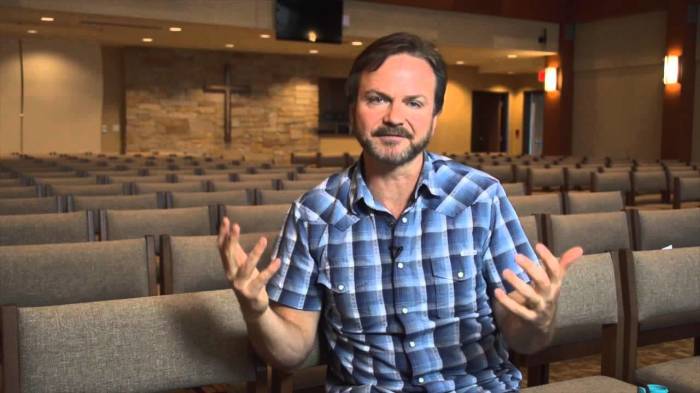Focus on what made Jesus mad to know God's heart, says pastor

Believing Jesus would be “disappointed” in how the Church is handling controversial issues today — from the LGBT community to alcohol — Pastor Tim Harlow is challenging Christians to re-examine what truly made the Son of God mad.
“I believe Jesus would be angry with the way the Church is responding to things today, even if they’re theologically correct,” Harlow told The Christian Post. “We have an image problem, and I believe Jesus would tell us we have an image problem. People on the outside are watching us debate these issues, and they’re deciding they don’t want what’s on the inside.”
“That’s not to say theology doesn’t matter, but how we deal with these things does matter,” he added. “Jesus was angry at those whose attitudes got in the way of his purpose: To seek and to save the lost, to unite us with God's amazing love.”
In his forthcoming book, What Made Jesus Mad: Rediscover the Blunt, Sarcastic, Passionate Savior of the Bible, Harlow, senior pastor of Parkview Christian Church in Orland Park, Illinois, identifies the issues that most angered Jesus and urges believers to align their hearts with His, thus getting back to actually following the Savior.
Harlow told CP that to truly know someone, it’s important to identify what makes them angry — not what makes them happy. It’s important, then, to ask the question: “What made Jesus mad?” rather than the cliché “What would Jesus do?”
“Oftentimes, we focus on the gentle, sweet image of Jesus, but in reality, He often got angry,” Harlow said. “Interestingly, what most often made Jesus mad were the church leaders, the Pharisees, and religious zealots; the representative authorities acting on behalf of God. If Jesus was mad at those people, what would He think today?”
“When Jesus got angry, He was only angry at those blocking access to God,” he continued. “He didn’t get angry at the adulteress and the tax collector; He got angry at those in the Church who were supposed to know better.”
In the Gospels, Jesus was angered by the hypocrisy, greed, judging, and lack of mercy coming from the hearts of people who supposedly followed God, Harlow contended. His anger is perhaps most evident in His response to those who were making a profit by exchanging money and selling animals at the temple (Matthew 21:12-13; Mark 11:15-18; John 2:13-22).
“In those passages, Jesus overturns tables out of righteous anger,” Harlow said. “It’s fascinating: I always thought His anger stemmed from the money chargers charging too much money. But actually, He was angry because they were selling their wares in the Court of the Gentiles, crowding out those who had traveled to worship.”
“I don’t believe the cause of Jesus’ anger was the merchants selling too much,” he continued. “I believe He was angry because they were getting in the way of people trying to worship God.”

Harlow came to Parkview Christian Church in Chicago’s southwest suburbs in 1990, when it was a church of 150 people in a mostly unchurched area. Since then, Parkview has grown into a multisite church on a mission, reaching nearly 8,000 people every weekend.
The pastor told CP that for nearly three decades, he’s worked with people who have baggage from their past church experiences. His heart, he said, is for the prodigal and sharing with them the hope that will bring them back to Christ.
“Getting on our high horse and alienating people gets in the way of what God is trying to do,” he emphasized. “We get up and preach about issues, whether it’s about LGBT rights or alcohol, but we don’t often look at ourselves and how we’re approaching things. Theologically, the Pharisees were correct that Jesus wasn’t supposed to work on the Sabbath. But He held to a higher ideal than the rules.”
“My point,” he added, “is not to look at the religious leaders and Pharisees as jerks or demonize anyone or take sides on an issue, but to interpret their actions to make sure I’m not doing the same thing. Today, I’m an acting authority — I have a whole church trusting me as an acting authority on behalf of God. It’s an introspective book that’s the result of a 10-year journey.”

When asked how Christians can respond like Jesus when people conspire to keep others from God’s presence, Harlow responded, “It depends on whether they’re in the house or out of the house.”
“The pontificators on social media, the people that have an agenda, the people that want to gripe, there’s not much I can do about them,” the pastor said. “The best thing the Church can do is love those furthest away.”
The Church, Harlow said, would look vastly different if it truly paid attention to what angered Jesus and loved “the least of these.” Far too many churches today have “older brother syndrome,” he said, referencing the parable of the Prodigal Son, in which the older brother represents the rule-following Pharisees.
“When people see the older brother, the prodigal doesn’t get to come home,” he said. “I don’t think there would be enough room for the people that would want to come home to the Father if we could get the older brother out of the way.”
“Yes, it would be messy as heck,” Harlow added. “Church is going to be messy, but whenever I find the Church acting like Jesus and taking seriously the way Jesus portrayed His Father’s love to the people around them, I can’t find enough room to put them."
“When you open the door up to the people who have been looking for the love of the father they knew was there, they just didn’t think they deserved it, the Church will be unstoppable," he concluded. "That is Christianity at its best.”



























